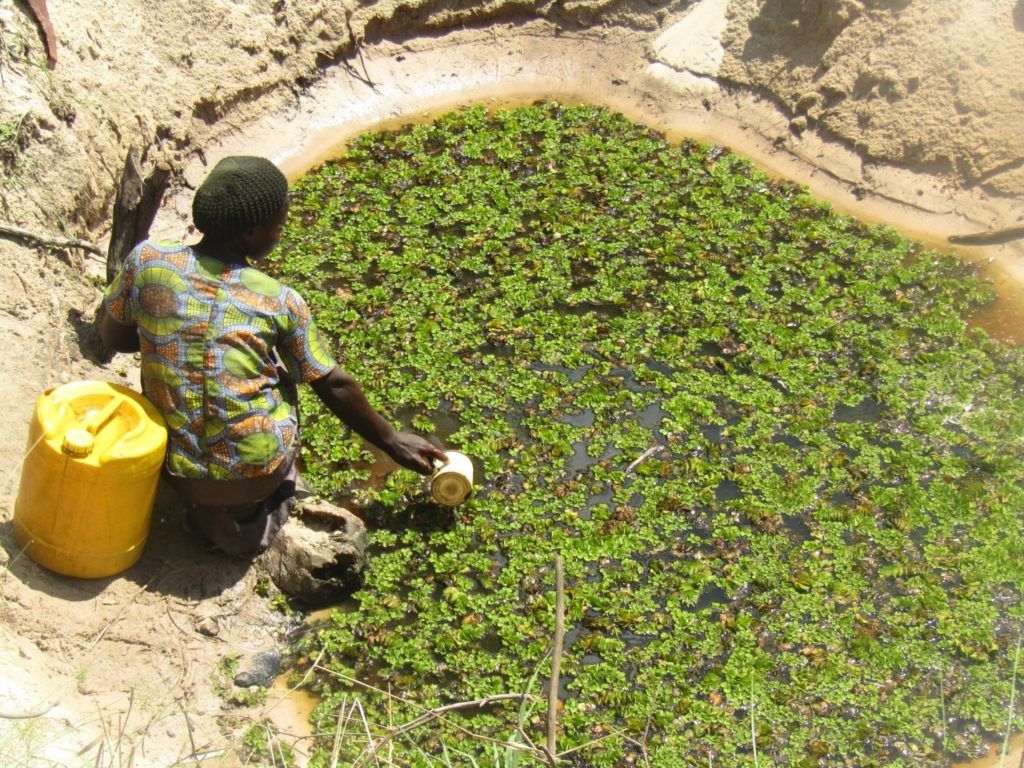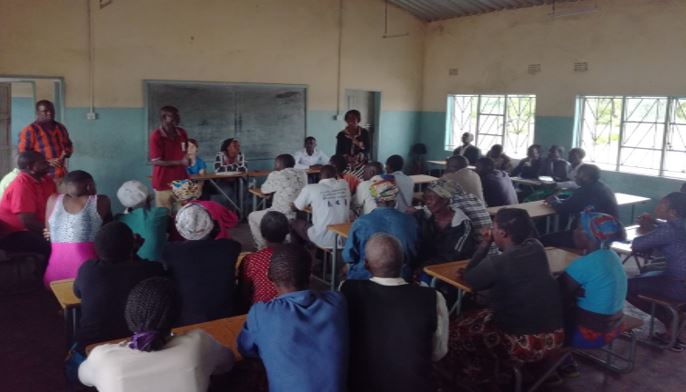Clean Water, Healthy Communities
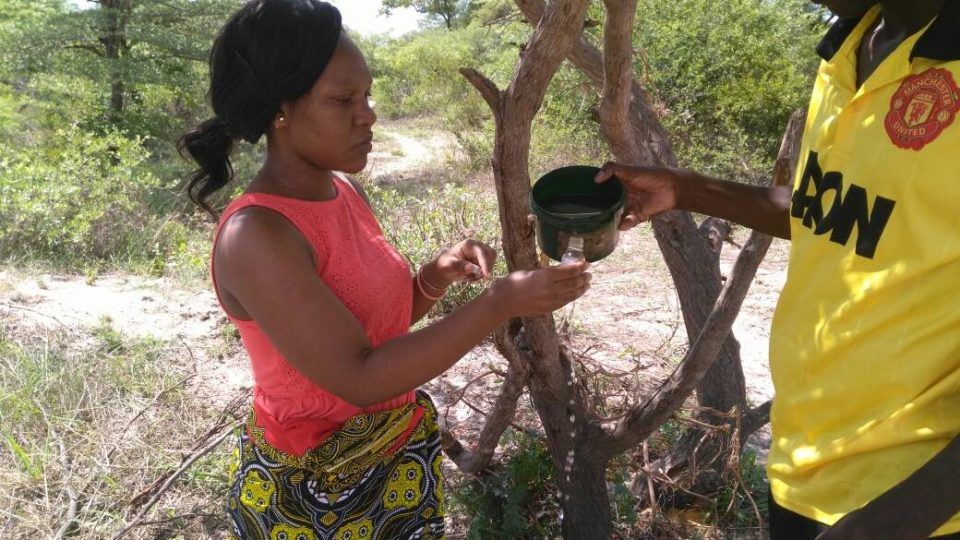
Erica Tafadzwa is a public health professional currently volunteering with our team in Zambia. She dedicates much of her time serving the members of our CHAMPS (Children and Mothers’ Partnerships) community in Mwandi. The goal: to make the most vulnerable families healthy.
To help achieve this goal, Erica serves side-by-side with our inspiring and committed community health workers. Here she reports on a pilot project that aims to bring one of the world’s most precious resources to the people in Mwandi.
Clean, Safe Water
Access to clean, safe water shouldn’t be a luxury. But for too many people around the globe, finding safe water to drink is a dream.
Globally, at least 2 billion people use a drinking water source contaminated with faeces (WHO).
Contaminated water transmits diseases such as diarrhea, cholera, dysentery, typhoid, and polio. In fact, contaminated drinking water is estimated to cause over half a million diarrheal deaths each year.
It is estimated that by 2025, half of the world’s population will be living in water-stressed areas.
The people of Mwandi, Zambia are part of this group of people who struggle to access safe water. One of my hopes during my time volunteering in Zambia is to bring solutions around water to the people in Mwandi. In this post, I report on a recent pilot project around water in Mwandi.
Tackling Water Challenges in Mwandi
Chlorine Pilot Project: A Success Story
CMMB works with nine rural health centers in Mwandi, Zambia. One of which is Matoya.
The Matoya catchment area consists of a total number of 569 households and a total population of 4,832 people. The residents of Matoya rely heavily on contaminated water sources. Drilling boreholes is particularly challenging there due to the salinity of the underground water in the villages.
We visited the health facility in Matoya where it was reported that diarrhea cases were the second cause of illness affecting patients visiting the facility. In September 2017, we also visited the health post in Simungoma village which lies south of the Matoya catchment area. The health facility is manned by a community health worker who reported that he would attend to 10-15 patients per day who suffered from diarrhea. By October 2017, five cases of Dysentery from Simungoma were reported to Mwandi Mission Hospital. We then visited the Induna (traditional leader) of Matoya whom we shared our concerns with and notified them of our intentions to start programs that would improve the water used by communities and reduce illness. The Induna gladly welcomed CMMB and assured us of his support.
Our Intervention
Aware of the poor water sources and the rainy period occurring in Mwandi from October to April, we secured a total of 300 bottles of chlorine which could be accessed by Simungoma populations at a low cost. We did not give out the bottles for free because that is not a sustainable practice. However, equipping communities with knowledge on how to safeguard their health is more important because once an individual understands the practices that are harmful to their health, learns how to prevent illness and believes they are capable of safeguarding their health, there is a higher chance that people will engage in disease-preventing practices. The health facility staff helped identify seven villages in Matoya where diarrhea was a problem.
Stage 1: Assessing the Need
With the help of the WASH Champions, household assessments were conducted in the seven villages. A total of 163 households were chosen for the chlorine pilot programme. Out of the 163 households, 141 households did not have a pit latrine and defecated in the bush. This means that during the rainy seasons large amounts of human waste is washed away and deposited into the water sources where the communities fetch their water from. 68 households had diarrhea cases frequently affecting the family members. Water treatment was not a common practice in most households who drank water directly from the sources. Open wells, hallow wells, and ponds were found to be the main water sources used by the Simungoma population. We visited one of the water sources and found a community member fetching and drinking water as shown below:
Stage 2: Testing the Waters
Water testing bottles were obtained from the Environmental Health Department at Mwandi Mission hospital and these were used to test the main sources from the seven villages.
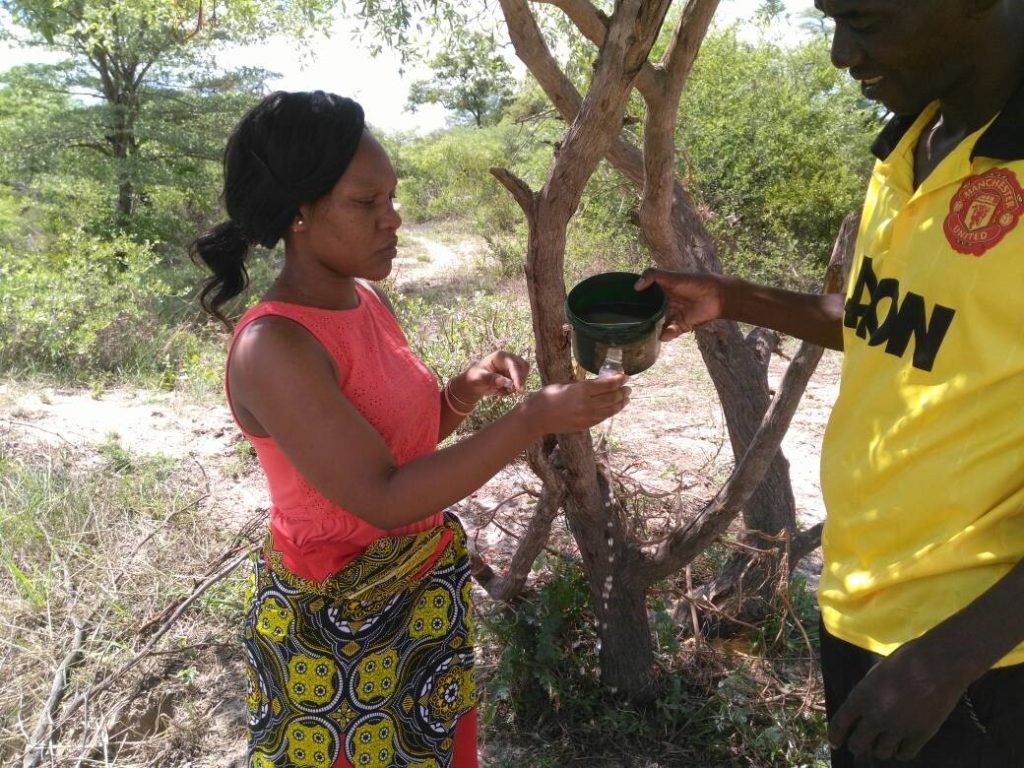
Erica (left) and a WASH Champion Litebelele (right) collect water for testing from the main source used by populations in Likatalelo village.
Safe water remains brown whereas contaminated water turns black between 24-48 hours. The image below shows the results:
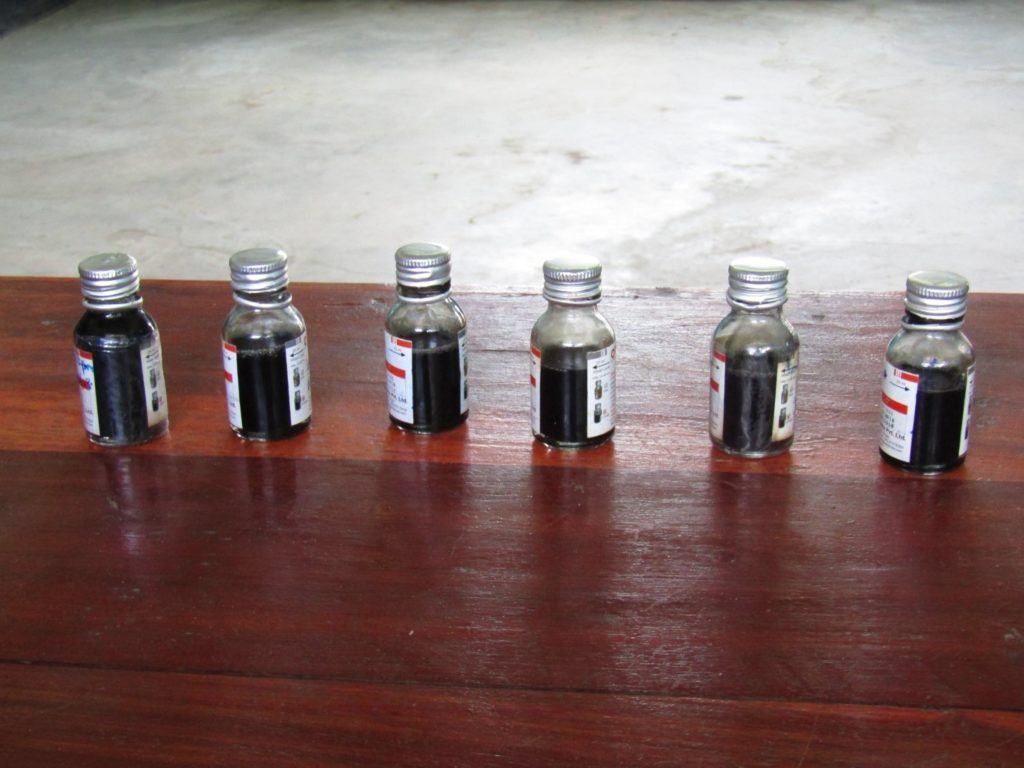
Fig: Water from the 6 villages appear black in the picture, meaning they are contaminated with germs and unsafe for drinking
Stage 3: Knowledge is Power
WASH education sessions were conducted in the communities and in peoples’ homes. To help validate the project, the Induna (representative of the chief) was present to support CMMB ‘s work. It is so important for community members to see leaders at these events.
“Change is the end result of all true learning.” – Leo Buscaglia
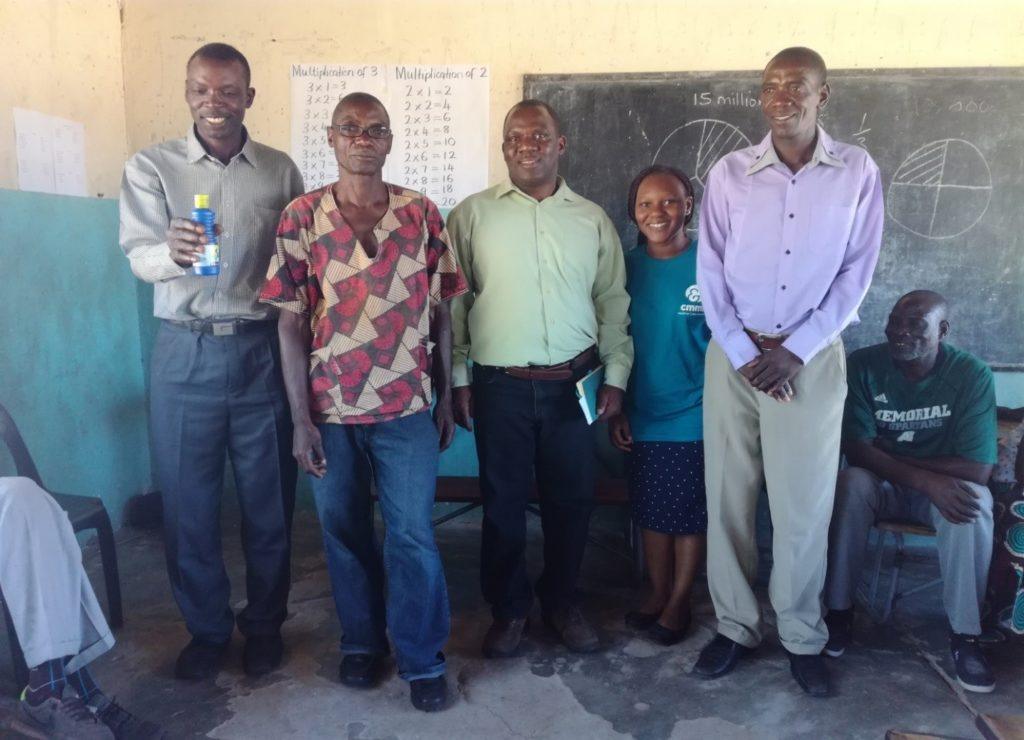
From left to right : Induna Silalo holding a chlorine bottle during a chlorine sensitization meeting in Simungoma. He was joined by WASH champion Mr. Brian Zuze, CMMB CHAMPS coordinator, Mr. Richard Shimwala, me (Erica CMMB volunteer), and Mr. Litebelele Kekelwa, also a WASH Champion.
Educating and Empowering the Community
The community members were in shock when shown the results of the water tests. They could not believe that the water they were drinking, the water they were giving to their children was so contaminated. It was especially encouraging when, at the end of the training sessions, almost all of the people who attended requested a bottle of chlorine before going home. They had come to understand the importance of treating water.
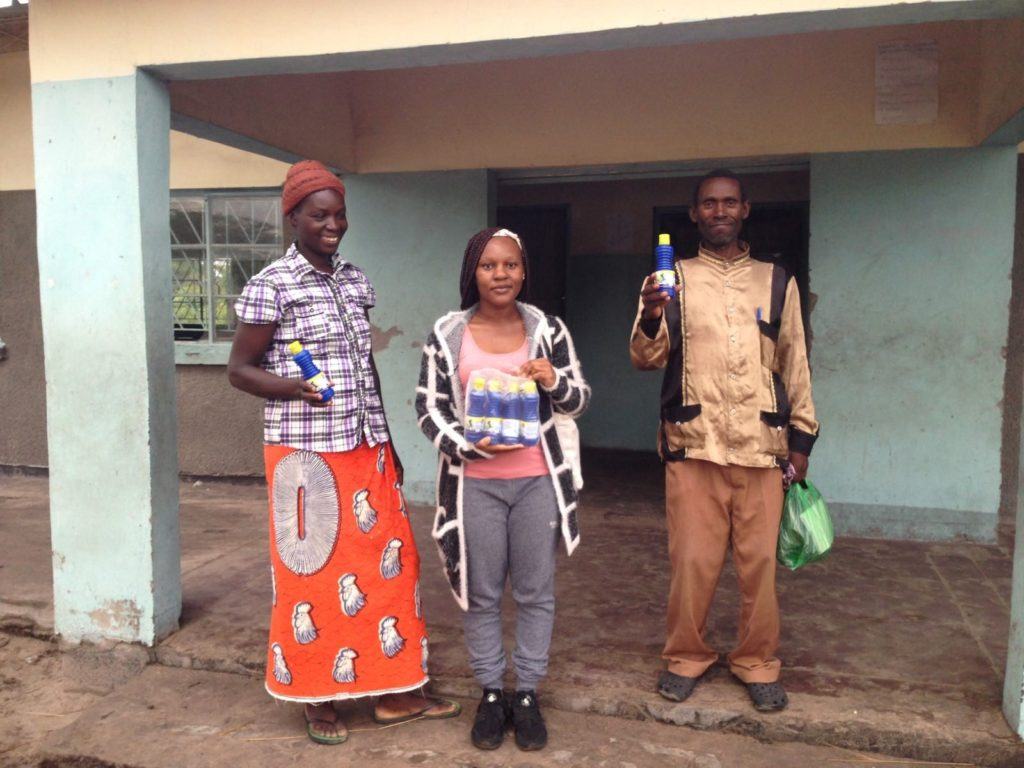
Fig: Here I am standing with community members who purchased chlorine for treating water in their homes.
Delivering Safer Water
The CMMB team has been busy delivering chlorine to communities. We are so pleased to see that the ‘demand’ for it is rising. It is a good indication that the community training and sensitization programs are working well to highlight the benefits of treating water.
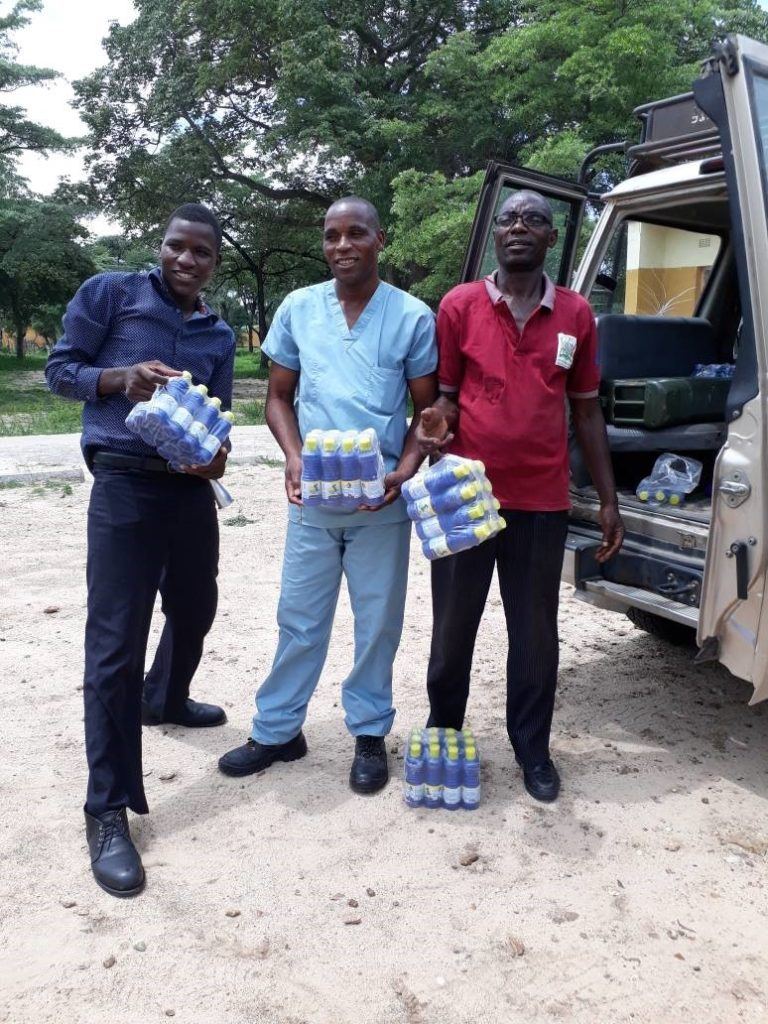
Fig: Nurse in charge at Matoya rural Health center stands with assistant (left) and WASH Champion (right) as they receive the chlorine bottles delivered by CMMB in their community.
Having the chlorine delivered during regular CMMB visits helps families who cannot afford the cost of transportation to Mwandi village (nor the high retail cost of chlorine) access this life-changing ingredient.
One of the agents who received chlorine on behalf of her village in Simungoma is Sepiso whom upon learning about Chlorine has been using it for more than a month and told us she would continue treating her water because this prevents her family from getting ill.

Fig: I am pictured here with Sepiso (pink dress) who poses with her family after receiving 50 chlorine bottles for their community. Far right is Mr Brian Zuze a WASH Champion who delivered the bottles at the community’s request.
Progress
A month after the start of the sensitization programs, 50 bottles have already been procured by the communities who benefit from purchasing the chlorine at a reduced rate through the Society for Family Health. This money is then used to continue running the program, allowing us to scale up the program and reach other affected regions in Mwandi. Our hope is that these measures will help significantly reduce the number of cases of diarrhea and therefore bring healthier lives to the families living here.
